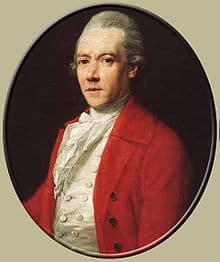Philip Livingston was born at Albany in January 1716. His ancestors were well-known in New York.
Early Years
Philip Livingston lived in New York City. He became a prosperous businessman in the mercantile industry. In 1754, New York City elected him as an alderman for nine consecutive terms.
Before the revolution, Livingston served on the Correspondence Committee for the New York colony. He kept Edmund Burke, the agent for the colony to Britain, apprised of the circumstances of the colony.
Patriotic Stirrings
During this time, Livingston grew apprehensive over the British government of the colonies. As with other patriots, he was willing to submit to British rule as long as Britain ruled justly with the colonies. Unfortunately, Britain continued to levy heavy and unreasonable taxation on the colonies.
In 1774, New York sent Livingston as one of their representatives to the Continental Congress. Over the course of the next two years, Livingston was an active participant in the deliberations. Finally, in 1776, Livingston voted in favor of America’s independence from Great Britain. He signed the Declaration of Independence in August 1776.
Statesman
In 1777, New York adopted a state constitution. In May, Livingston became a senator for the southern district of New York and attended the first meeting of the state legislature.
Unfortunately, Livingston’s health declined rapidly. He suffered from heart dropsy or chronic heart failure. On June 12, 1778, Livingston died. Upon hearing of Livingston’s death, the Continental Congress issued the following resolution:
“Congress being informed that Mr. P. Livingston, one of the delegates for the state of New-York, died last night, and that circumstances require that his corpse be interred this evening,
“Resolved, that congress will in a body attend the funeral this evening, at six o’clock, with a crape round the arm, and will continue in mourning for the space of one month.”
